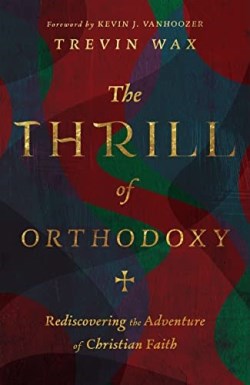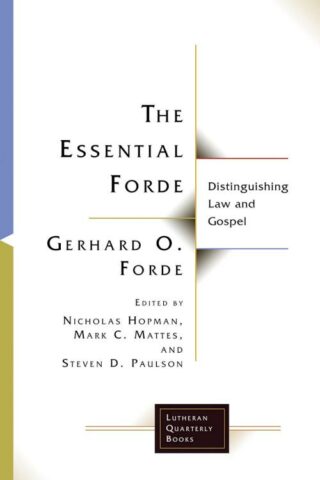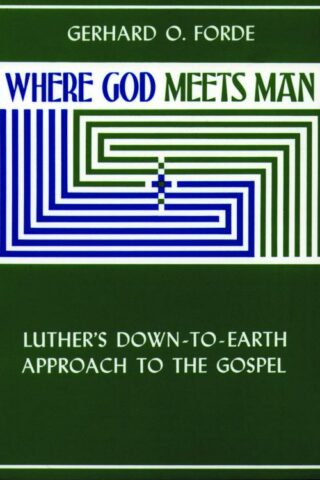Gerhard Forde
Showing all 2 resultsSorted by latest
-
Essential Forde : Distinguishing Law And Gospel
$62.50No twentieth-century American understood Luther’s law-gospel distinction better than Gerhard O. Forde, who was professor of theology at Luther Theological Seminary in Saint Paul, Minnesota. Because Forde kept this Lutheran distinction razor sharp, his theological writings are an essential inheritance for us today. This volume, The Essential Forde, aims to provide the essence of Forde’s writing centered upon Luther’s and Scripture’s essential distinction, that is, the distinction between law and gospel.
The editors of this volume have chosen some of the most definitive writings of the renowned Gerhad Forde, whose influence continues to grow. The list of works trace the contours of Forde’s theological argument. Organized around “Law and Gospel,” the selections start off with some historical background on that doctrinal locus, but for the most part express Forde’s own views of the law and the gospel, including death and resurrection, the bondage of the will, good works, preaching, and the sacraments. Besides these essential writings, the book will provide a definitive introduction by the editors, which includes a brief biography of Forde, an essay regarding his doctrinal interpretation, and a sketch of the Forde legacy. Also contained in the volume will be a comprehensive bibliography of all of Forde’s published works plus work published about him.
Add to cartin stock within 3-5 days of online purchase
-
Where God Meets Man
$31.66This book about Luther’s theology is written out of a two-fold conviction- first, that many of our problems have arisen because we have not really understood our own traditions, especially in the case of Luther; and second, that there is still a lot of help for us in someone like Luther if we take the trouble to probe beneath the surface. It is an attempt to interpret Luther’s theology for our own day.
Add to cartin stock within 3-5 days of online purchase












